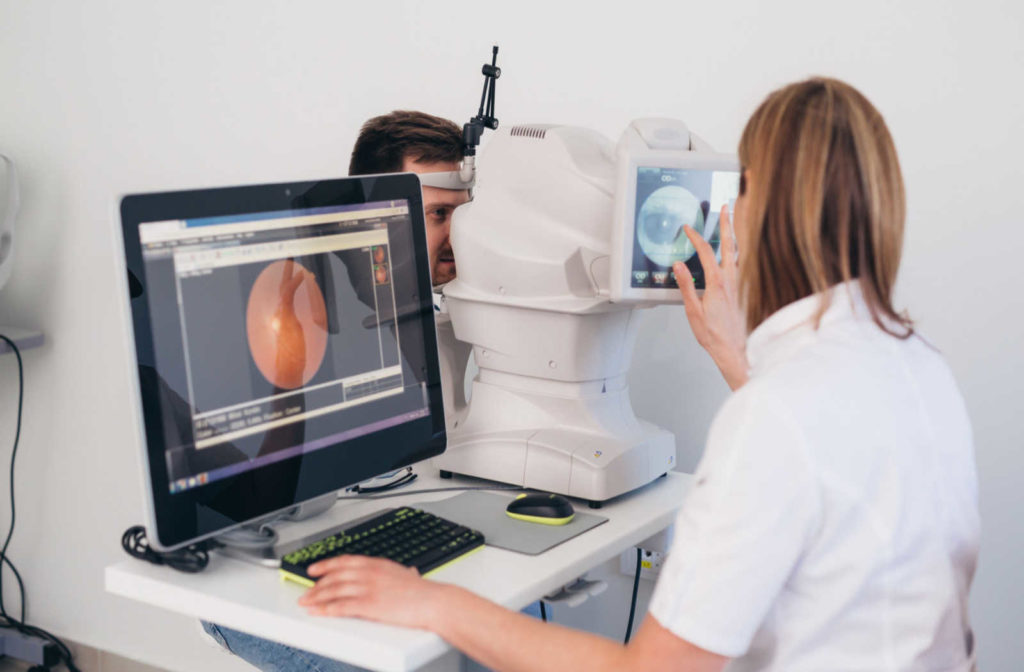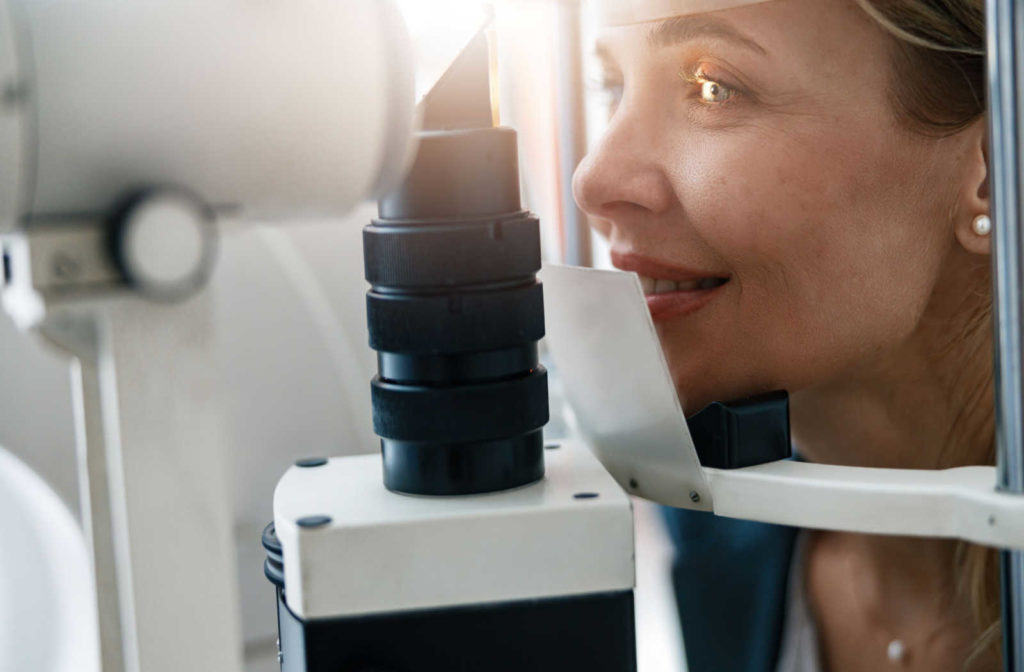We know that comprehensive eye exams are a critical part of detecting and diagnosing eye diseases and conditions. And with a condition like glaucoma, which can develop for many years before it shows symptoms, these exams are especially important.
There isn’t a one-size-fits-all answer to prevent glaucoma from worsening because treatment can depend on the type of glaucoma and its severity. However, a couple treatment options for glaucoma exist, including surgery, oral medication, or medicated eye drops.
One important thing to consider is that prevention is often the best cure. So, we’ll also review a few tips for prevention below.
What Is Glaucoma?
Glaucoma is an umbrella name that refers to numerous subtypes of the disease. It’s important to note that of those subtypes, 2 are the most common: open-angle and angle-closure glaucoma.
Open-angle glaucoma is the more common of the 2. And fortunately, it’s less dangerous. But the catch is that it often doesn’t present any symptoms until it’s further along, and it can turn into the more dangerous angle-closure glaucoma.
If glaucoma is (or turns into) angle-closure, it’s generally an emergency situation. The primary danger with any glaucoma is the buildup of fluid pressure inside the eye. The particular subtype of glaucoma determines the part of the eye that’s damaged.
There is a complete blockage with angle-closure glaucoma, so pressure can potentially build up rather quickly. This may cause immediate symptoms, and it needs treatment as soon as possible.
Symptoms
Common symptoms of glaucoma include:
- Usually no signs at first
- Patchy, blind spots gradually appear in your side (peripheral) vision
- Central vision affected by blind spots in the later stages of the disease
There are a few symptoms that are often unique to angle-closure glaucoma. If you experience any of these symptoms, you should seek medical help from your eye doctor:
- Eye pain
- Severe headache or migraine
- Upset stomach or throwing up
- Different-sized pupils
- Sudden loss of sight
None of these guarantees that you’ve developed glaucoma. However, none are good signs, especially if you experience more than one symptom. If you’re experiencing any of these signs, please see your eye doctor immediately.

Preventing Glaucoma From Worsening
Once glaucoma damages your eyes and vision, it cannot be undone. So, it’s important that treatment begins quickly after the diagnosis. This helps prevent the disease from doing any more damage.
Several treatments and therapies available are available and include:
- Medication: Most medication options are designed to reduce the buildup of fluid and pressure in your eye. Some limit fluid production and others help drainage. You can discuss medicated eye drops and oral medications with your eye doctor.
- Surgery: A commonly used surgical procedure is a trabeculectomy. The ophthalmologist makes a small surgical incision in the sclera (the white part) of the eye. This creates another spot for drainage.
- Drainage tubes: Another surgical procedure involves the eye doctor inserting small tubes into the eye. This also helps lower eye pressure by draining excess fluid.
- Laser therapy: In some circumstances, your eye doctor may recommend a selective laser trabeculoplasty. A special laser is used to change the drainage tissue in your eye. This can help improve fluid drainage. It could even eliminate or minimize the need for medication.
Glaucoma Prevention
Preventing glaucoma in the first place is ideal because the damage it does cannot be undone. If you’re at a higher risk of developing glaucoma, your eye doctor may recommend that you come in more frequently for eye exams.
Other than eye exams, tips for glaucoma prevention include:
Medication
Your eye doctor may prescribe you a medication or eye drop to prevent pressure buildup if they see signs of it. Ensure you’re taking all medications prescribed or recommended by the optometrist.
Healthy, Balanced Diet
A healthy diet is tied to many health benefits, including glaucoma prevention. Ensure you’re eating a lot of fruits and veggies, especially those containing vitamins A, C, B3, Omega-3 fatty acids, and carotenes.
Protect Your Eyes
Eye injuries can lead to an increased risk of developing glaucoma in addition to potential blindness. So, protecting your eyes with proper safety eyewear while working or playing sports is essential.
Exercise
It’s important for our overall health to stay active and exercise. Eye health is no different. However, with a condition like glaucoma—caused by abnormal pressure—it’s important to exercise safely and use proper breathing techniques to avoid problems.
Discuss Your Treatment & Prevention Options
Proper prevention considerations can certainly reduce your risk of developing glaucoma. But sometimes, no matter what we do, diseases can develop. When this happens, Foothills Optometric Group is here to support your eye health journey.
Reach out to our team and book an appointment with one of our eye doctors today.



